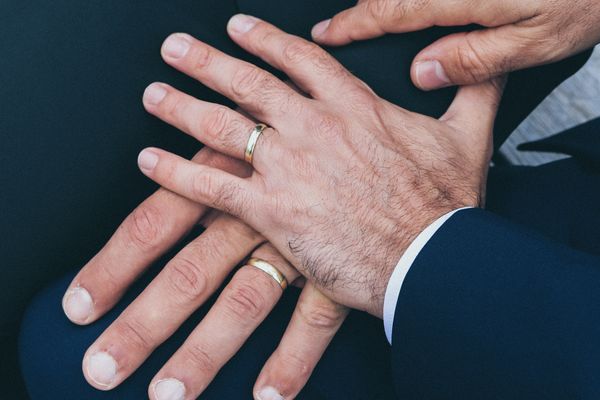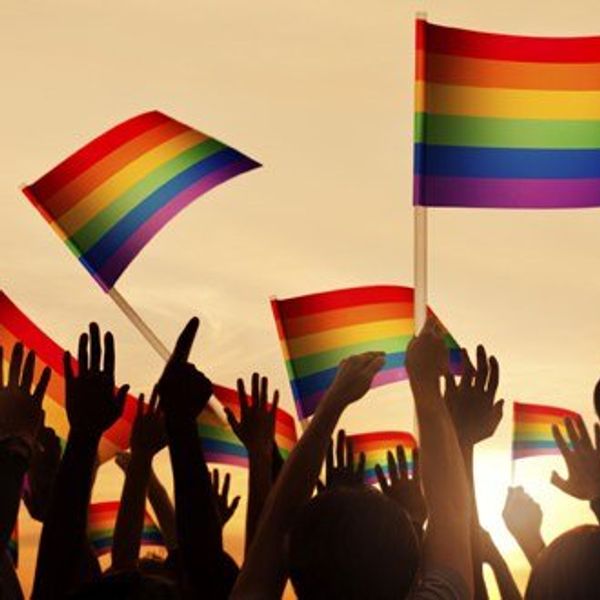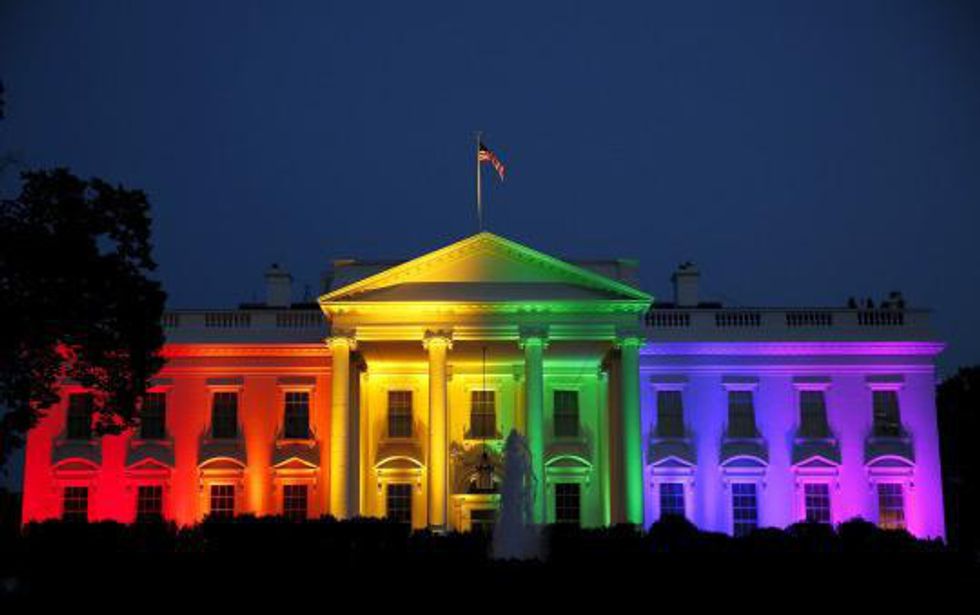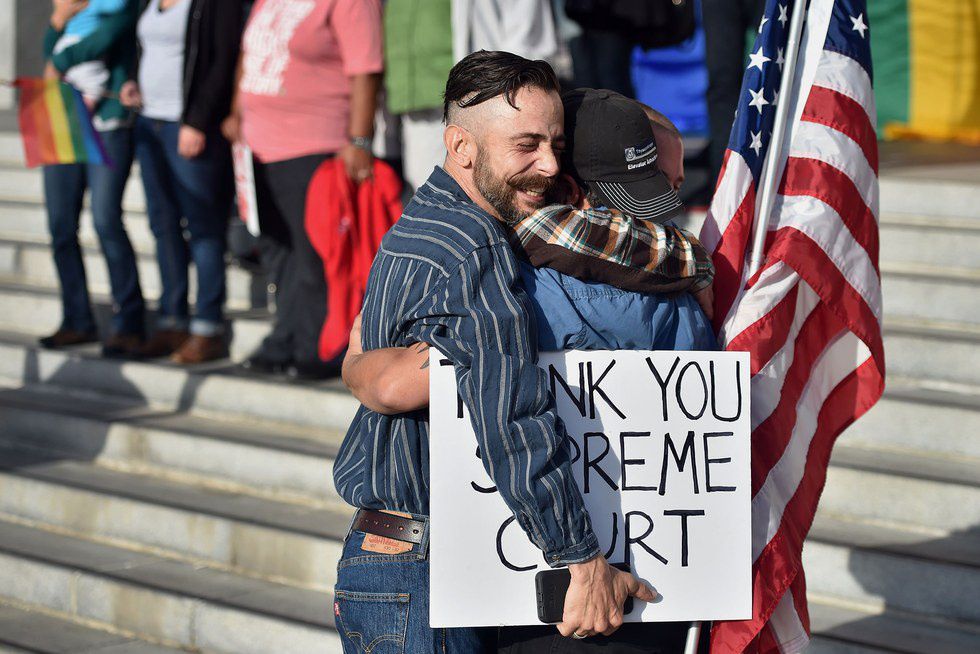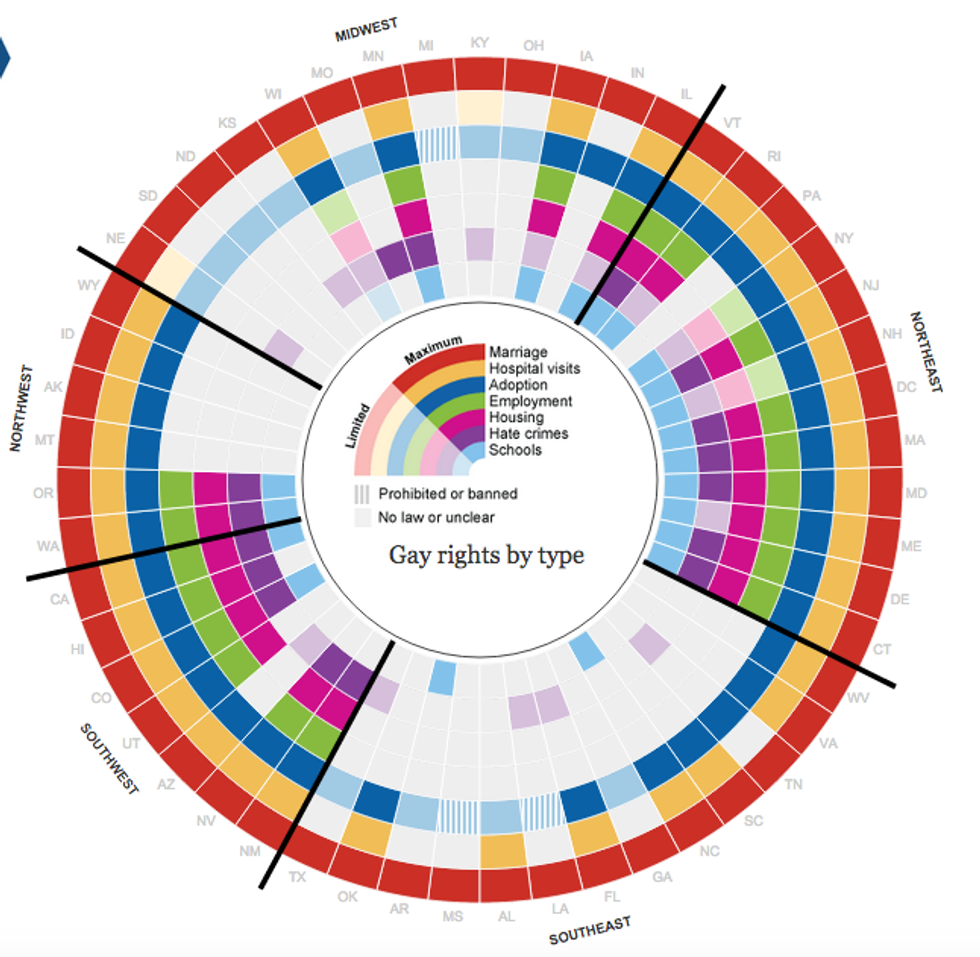On June 26, the United States Supreme Court released their landmark 5-4 decision in Obergefell v. Hodges, which declared gay marriage bans throughout the country unconstitutional. Citing the 14th Amendment, which makes it clear that "no state shall...deny to any person within its jurisdiction the equal protection of the laws," the five-justice majority overturned the remaining 14 state bans on gay marriage. By doing so, they affirmed that gay couples have a right to marry anywhere in the United States.
Celebrations ensued. The White House was lit up in rainbow colors, as were thousands of Facebook profile pictures and dozens of corporate logos. Jubilant crowds rejoiced all over the country, from Washington D.C. to West Hollywood to New York City. Couples embraced each other in happy recognition of their newfound rights. President Obama officially declared his support of the decision, as did many celebrities.
Unfortunately, this is not the end of the decades-long struggle for gay rights. In years past, marginalized minorities have been protected by anti-discrimination laws, the most famous of these being the Civil Rights Act of 1964. That famous law made discrimination on the basis of race, color, sex, religion, or national origin illegal.
At the time, gay rights were not in the public eye or a part of the political agenda. Accordingly, there is no federal law preventing discrimination based on sexual orientation or gender identity.
Although we all wish we could count on the people of this country to be fair and reasonable in their treatment of homosexual, transgender, and nonconforming people, the sad truth is that meaningful, harmful discrimination is happening throughout the United States. The ACLU (American Civil Liberties Union), GLAD (Gay & Lesbian Advocates and Defenders), and other groups have taken up the cases of many gay and transgendered Americans who have been fired, evicted, and otherwise cast aside because of their truthful expressions of identity and love. While GLAD and the ACLU have been successful in many important cases, too many go unresolved due to ambiguous laws, a lack of protection, or sometimes flat-out legal discrimination.
A whopping 28 states (including Florida) lack legislation protecting gay and transgendered people from employment discrimination. The same 28 states haven't outlawed housing discrimination, either. 13 states don't require hospitals to allow same-sex couples visitation rights, and 14 states have laws that are either unclear about adoption or specifically ban gay couples from adopting children.
Yes, you read that correctly. In over half of the states in this Union, it is legal for employers to fire employees and for landlords to evict tenants (or refuse their business entirely) because of their sexual orientation or gender identity. In another significant number of states, a homosexual individual can be denied the right to visit their spouse in the hospital, and a gay couple can be legally prevented from adopting a child, for no other reason than an unconventional expression of love.
The infographic above can be accessed here.
Some quick math here yields startling results. We'll use 2010 census numbers: the population of the U.S. in 2010 was a little over 308 million. The combined population of the 28 states I mentioned earlier was roughly 163 million in 2010. That means more than half of all Americans live in a state where employment and housing discrimination against gay and transgendered people is perfectly legal. Estimates of the LGBTQ+ population in America allow us to deduce that anywhere between 5.5 and 6.1 million gay and transgendered people in this country live in a state where they are not legally protected from life-changing discrimination.
These are extremely rough estimates, and keep in mind I've assumed that the LGBTQ+ community is spread evenly across all 50 states. The above numbers are just to give you some idea of the scale of this problem. This isn't just affecting a handful of people from a dozen homophobic communities. This is affecting more than half of America.
Let me put forth a hypothetical case: imagine you are a lesbian woman living in rural Florida. You decide to get married to your committed partner of twenty years. The day after the wedding, your boss and landlord find out, and you are subsequently legally fired from your job and legally evicted from your apartment. Not only have you been told you're somehow on a lower level than the rest of us because of who you love, but you've been cast out onto the streets of a society that claims to revere the idea that "all men are created equal." Your government, which has been empowered in the past to protect all types of marginalized groups from unfair, immoral, and un-American discrimination, is powerless to retaliate against the people that ruined your life. There's nothing you can do. How would you feel? The disgusting thing is, this is entirely possible in Florida and in much of America today.
The Supreme Court's decision legalizing gay marriage throughout the U.S. is an important step towards equality for gay Americans across the country. However, it is dangerous, blind, and flat-out wrong to assume that the fight for equality is finished. Although a crucial battle has been won, the war is far from over.
If you live on or around the UCF campus, you can contact John Mica, your U.S. Congressman, here, Bill Nelson and Marco Rubio, your U.S. Senators, here and here, and tell them your thoughts about a federal anti-discrimination law that would protect LGBTQ+ rights throughout the country.
If you're interested in contacting your state officials, your Florida state Senator Andy Gardiner can be contacted here, and your Florida representative Rene Plasencia, here. Please, if this is important to you, don't just stand by. Do something! Regardless of where you're from, take the time to find out who represents you in the government and let them know how you feel about this. The rights and liberties of your fellow Americans depend on it.
(Photo Credits: First image - Gary Cameron/Reuters, Second image - Josh Edelson/Bloomberg, Infographic - The Guardian)

